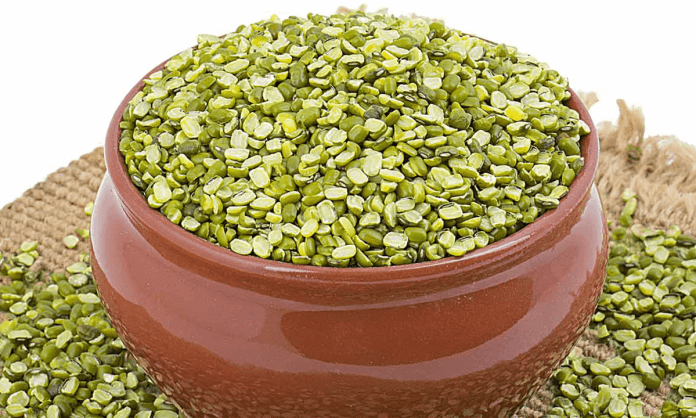ISLAMABAD, : In order to fulfill the domestic requirements of leguminous, mung pulse to be cultivated over 189.29 thousand hectares and mash to be grown on 18.33 thousand hectares during crop season 2021-22.
The production of both above mentioned pulses, which was the major consuming commodities in the country were fixed at 171.20 thousand tons and 10.75 thousand tons during the period under review, said an official of the Ministry of National Food Security and Research.
Talking to APP here on Tuesday, he said the government has embarked a plan to enhance output of pulses to reduce reliance on imported leguminous that were consuming billions of dollars per annum.
The government had also allocated special funds under its Public Sector Development Program for fiscal year 2020-21, he added.
Meanwhile, Pakistan Agriculture Research Council (PARC) would provide pulses production technology to farmers across the country during current season.
Besides, the council under its Pulses Enhancement Project would also provide high yielding crop seeds, as well as acquisition of germplasm from international collaboration, transferring germplasm to national institutes and storing them in PARC-PGRI seed bank for further multiplication and research purposes.
In this regard, PARC has also organised Travelling Seminars for Rabi pulses as an consultative process of research and germplasm sharing for pulses productivity enhancement, said PARC Chairman Dr Muhammad Azeem Khan.
He informed that travelling seminar was 15-days long and it was stated March 16, 2021 and would organize workshops and seminars across pulses production areas in the country.
It would be carried out in the districts of Punjab, Sindh, Khyber Pakhtunkhwa and Balochistan provinces, he said adding that PARC was investing in irrigation and planting technologies for productivity enhancement of pulses. For that ridge sowing methods, bed planters and responsive drip Irrigation system for pulses farmers were introduced and recommended, he said adding that bed planters were available and vigorously manufacturing in Daska.
He also advised for fully cooperate with the local farmers in terms of experience sharing, and urged the seed breeders and researchers for intensive research and assured the plant variety protection through Plant Breeder’s rights.
He informed that under the mega Public Sector Development Program project ‘Productivity Enhancement of Pulses’ farmers’ facilitation will be ensured that includes pulses production technology transfer, release of high yielding crop seeds, acquisition of germplasm from international collaboration, transferring germplasm to national institutes and storing them.
Moreover, through these seminars potential areas for pulses production will be identified and compost component will also be added to this project, he added.
Meanwhile, Project Director Pulses Enhancement Project Dr Mansoor Joiya said that pulses are an important crop that has an ability to grow in harsh conditions and dry lands.
It was like meat for underprivileged segments poor but due to low sporting price and less cultivated area, low production ihas been recorded in pulses crop.
PARC was conducting these seminars to engage the scientists and farming communities at one platform and enhance pulses productivity through knowledge and germplasm sharing, he added.
Follow the PNI Facebook page for the latest news and updates.









